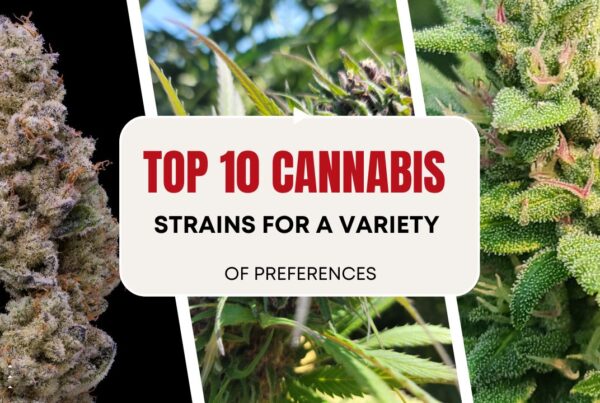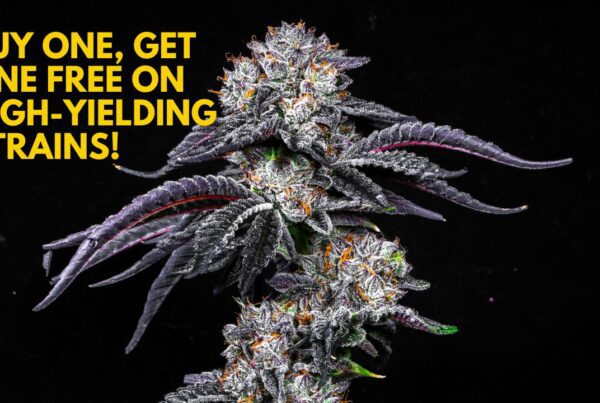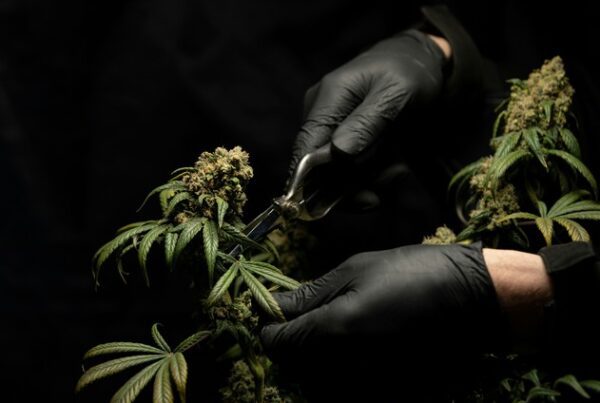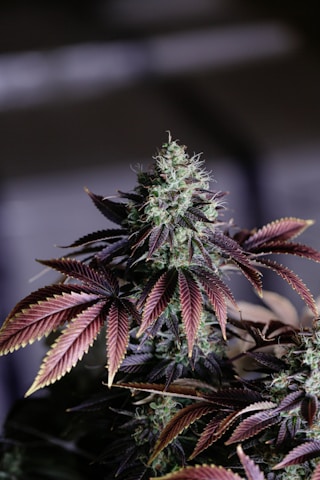
When it comes to cultivating a successful cannabis garden, choosing between autoflower and feminized seeds is a crucial decision. Each type offers unique advantages and drawbacks that can significantly impact your growing experience. Autoflower seeds are prized for their rapid growth and ability to flower based on age rather than light cycles, making them ideal for beginners or those seeking a quick harvest. On the other hand, feminized seeds guarantee that your plants will be female, eliminating the need to identify and remove male plants, thus maximizing your yield. However, they can be more sensitive to stress and may require more attention. By weighing the pros and cons of each seed type, you can make an informed choice that aligns with your gardening goals and expertise. In this guide, we will delve deeper into the benefits and limitations of autoflower and feminized seeds, empowering you to make the best decision for your cannabis cultivation journey.
Autoflower Seeds
Autoflower seeds have gained popularity among cannabis growers for their unique characteristics and benefits. In this section, we will delve deeper into what autoflower seeds are, their advantages, and potential disadvantages.
Definition and Characteristics of Autoflower Seeds
Autoflower seeds are a type of cannabis seed that automatically transitions from the vegetative stage to the flowering stage without requiring a specific light cycle. This means they will start flowering after a certain period, usually around 2-4 weeks, regardless of the light schedule. The autoflowering trait is inherited from Cannabis ruderalis genetics, a subspecies known for its autoflowering properties.
Advantages of Autoflower Seeds
- Quick Harvest: One of the primary benefits of autoflower seeds is their rapid growth cycle, leading to quicker harvests compared to traditional cannabis plants. This feature is advantageous for growers aiming for multiple harvests within a year.
- Compact Size and Discreet Growth: Autoflower plants typically remain small in size, making them ideal for growers with limited space or those seeking to cultivate discreetly. Their compact nature also makes them suitable for indoor growing setups.
- Resilience and Low Maintenance: Autoflower plants are recognized for their resilience and ability to withstand stress, making them suitable for novice growers or those facing less-than-ideal growing conditions. They require minimal maintenance and are forgiving of common mistakes made by beginners.
Disadvantages of Autoflower Seeds
- Yield Potential: While autoflower seeds offer quick harvests, they generally produce smaller yields compared to photoperiod plants. This lower yield potential can be a drawback for commercial growers or those aiming for maximum harvests.
- Limited Control Over Growth Cycle: The automatic flowering process of autoflower seeds means growers have limited control over the plant’s growth cycle. This lack of control can be a disadvantage for those who prefer to manipulate light schedules for specific outcomes or training techniques.
Autoflower seeds present a convenient option for many growers due to their unique characteristics and benefits. However, it’s crucial to consider the trade-offs between advantages and disadvantages to determine if autoflower seeds align with your cultivation goals and preferences. Whether you are a beginner looking for an easy-to-grow option or an experienced grower seeking quick turnaround times, autoflower seeds offer a compelling choice in the diverse world of cannabis cultivation.
Feminized Seeds
Definition and Characteristics
Feminized seeds are seeds that are specially bred to produce only female plants. These seeds are created by inducing a female plant to produce pollen, which is then used to fertilize another female plant. This process ensures that the resulting seeds will only develop into female plants. Feminized seeds are popular among growers due to their high success rate in producing female plants, which are the ones that produce flowers.
Advantages of Feminized Seeds
- Increased Yield: Since only female plants produce flowers, using feminized seeds can lead to higher yields as there are no male plants to take up space and resources.
- Time and Space Efficiency: With feminized seeds, growers do not have to worry about identifying and removing male plants, saving time and space in the cultivation area.
- Consistency: Feminized seeds offer consistency in terms of plant characteristics, making it easier for growers to predict the outcome of their harvest.
- Pest Resistance: Female plants tend to be more resilient to pests and diseases, providing an added advantage in cultivation.
- Quality Control: By eliminating the risk of male plants, growers can maintain the quality of their crop without the threat of accidental pollination.
Disadvantages of Feminized Seeds
- Lack of Genetic Diversity: Using feminized seeds exclusively can lead to a lack of genetic diversity in the crop, which may make the plants more susceptible to pests and diseases.
- Cost: Feminized seeds are often more expensive than regular seeds, which can be a deterrent for some growers, especially those on a tight budget.
- Unpredictability: While feminized seeds are designed to produce female plants, there is still a small chance of a plant turning hermaphroditic, which can result in pollination and seed production, affecting the quality of the harvest.
- Legal Restrictions: In some regions, the use of feminized seeds may be subject to legal restrictions or regulations, limiting accessibility for growers.
- Breeding Limitations: Relying solely on feminized seeds can restrict opportunities for breeding and developing new genetic strains, potentially hindering innovation in the industry.
Feminized seeds offer a convenient and efficient solution for growers looking to maximize their yield and streamline their cultivation process. While they come with certain drawbacks, such as reduced genetic diversity and higher costs, the benefits in terms of yield, consistency, and quality control make them a popular choice in the world of cannabis cultivation.
Comparison
Contrasting Features of Autoflower and Feminized Seeds
Autoflower vs. Feminized Seeds: Understanding the Differences
Autoflower Seeds: Pros and Cons
- Rapid Growth and Shorter Lifespan
- Less Maintenance Required
- Suitable for Beginners
- Resilient to Light Stress
- Tolerance to Temperature Variations
Feminized Seeds: Pros and Cons
- Consistent Quality and Potency
- Higher Yields
- Ideal for Experienced Growers
- Greater Genetic Stability
- Better Resistance to Pests and Diseases
Which Type of Seed is Suitable for Different Growers
- Novice Growers: Autoflower Seeds
- Experienced Growers: Feminized Seeds
- Growers with Limited Space: Autoflower Seeds
- Growers Seeking High Yields: Feminized Seeds
- Growers Focusing on Quality: Feminized Seeds
- Growers in Harsh Climates: Autoflower Seeds
Autoflower seeds are advantageous for those looking for quick harvests and minimal maintenance, while feminized seeds offer predictability and higher yields for seasoned cultivators. Novice growers benefit from the simplicity of autoflower seeds, whereas experienced growers appreciate the genetic stability of feminized seeds. Additionally, growers facing space constraints or harsh climates find autoflower seeds more accommodating. On the other hand, those prioritizing quality and pest resistance lean towards feminized seeds. Selecting between autoflower and feminized seeds involves considering factors like grower expertise, space availability, climate conditions, and cultivation goals.
When deciding between autoflower and feminized seeds, it’s essential to understand the specific needs of your cultivation project. Autoflower seeds are known for their rapid growth and shorter lifespan, making them ideal for growers looking to harvest quickly. These seeds require less maintenance, making them suitable for beginners or those with limited time to dedicate to their plants. Additionally, autoflower seeds are resilient to light stress and can tolerate fluctuations in temperature, making them a versatile choice for various growing environments.
On the other hand, feminized seeds offer consistent quality and potency, ensuring that experienced growers can rely on a predictable outcome. With higher yields compared to autoflower seeds, feminized seeds are favored by cultivators seeking maximum productivity. The genetic stability of feminized seeds provides reassurance to growers, ensuring that each plant exhibits desired traits consistently. Moreover, feminized seeds demonstrate better resistance to pests and diseases, reducing the likelihood of crop loss due to external factors.
The suitability of autoflower or feminized seeds depends on the grower’s level of experience, cultivation goals, and environmental conditions. Novice growers benefit from the straightforward nature of autoflower seeds, which require minimal intervention and provide a relatively forgiving growth process. In contrast, experienced growers who prioritize yield and quality often opt for feminized seeds to maximize their harvests and ensure top-notch product consistency. Growers with limited space can take advantage of the compact size and quick turnaround of autoflower plants, while those in harsh climates may find the resilience of autoflower seeds better suited to their conditions.
The choice between autoflower and feminized seeds is a nuanced decision that should consider factors such as grower expertise, space availability, desired yields, quality expectations, and environmental challenges. By understanding the unique characteristics of each seed type and aligning them with your specific needs, you can optimize your cultivation efforts and achieve successful harvests tailored to your preferences.
Conclusion
Both autoflower and feminized seeds offer unique advantages and disadvantages for cannabis gardeners. Autoflower seeds provide a quick and easy growing experience with a shorter time to harvest, while feminized seeds ensure a higher probability of producing potent, seedless buds. Ultimately, the choice between the two types of seeds depends on individual preferences, growing conditions, and desired outcomes. By weighing the pros and cons of each option, growers can make an informed decision that best suits their needs and goals for a successful cannabis garden.










